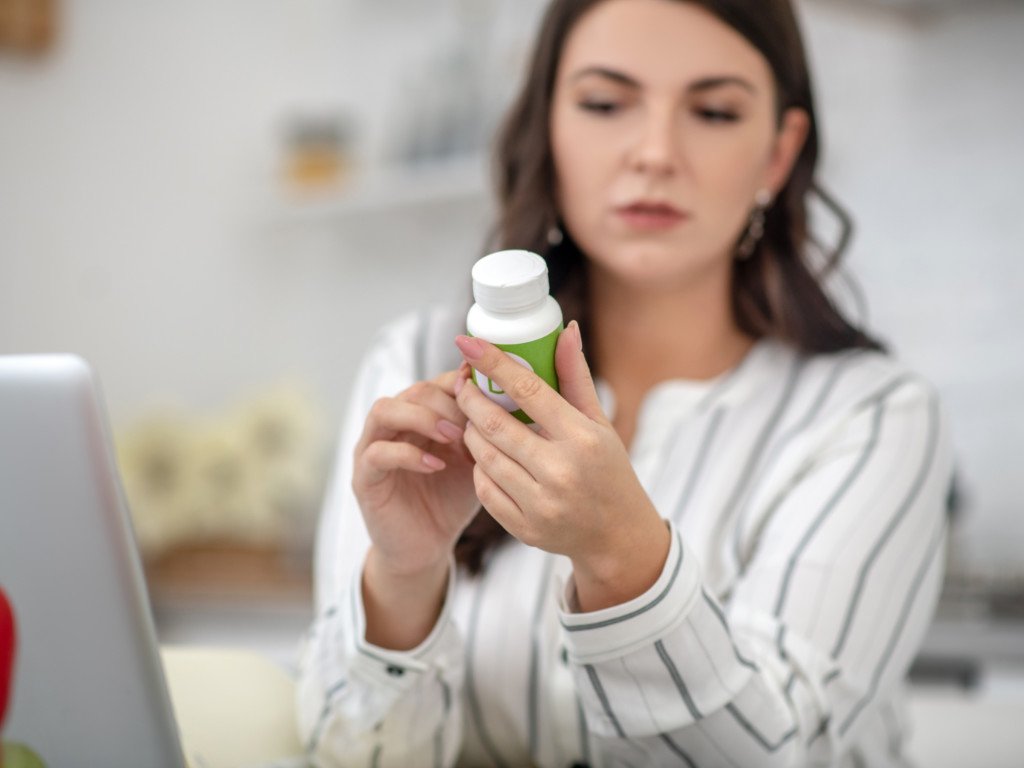Table of Contents
You’ve probably noticed the explosion of probiotic products aimed at women everywhere – from supplements to yogurt cups promising to revolutionize your health. But here’s the thing: probiotics for women aren’t just another health trend. They’re backed by real science and can genuinely transform how you feel from the inside out.
As a woman, your body faces unique challenges throughout different life stages. Whether you’re dealing with recurring UTIs, struggling with digestive issues, or navigating hormonal changes, the right probiotic strains can be game-changers. I’ve seen countless women discover relief they didn’t even know was possible once they understood how to harness the power of beneficial bacteria.
The truth is, your microbiome – that complex ecosystem of bacteria living in and on your body – plays a starring role in everything from your immune system to your mood. And when it comes to women’s health, certain areas need special attention that general probiotics just can’t provide.
What Makes Women’s Probiotic Needs Different?
Let’s get real about why women need specialized probiotic support. Your body isn’t just a smaller version of a man’s – it’s fundamentally different in ways that directly impact your microbiome health.
Hormonal fluctuations throughout your menstrual cycle, pregnancy, and menopause create constant changes in your bacterial environment. Estrogen levels directly influence the growth of beneficial Lactobacillus bacteria, especially in your vaginal tract. When hormones shift, so does your microbial balance.
Your vaginal microbiome is particularly unique. Unlike the diverse bacterial communities found in your gut, a healthy vaginal environment is dominated by Lactobacillus species. These bacteria maintain the acidic pH that keeps harmful pathogens at bay. But here’s where it gets tricky – this delicate balance can be disrupted by everything from antibiotics to stress to sexual activity.
Women also face higher rates of certain conditions that probiotics can help address. Urinary tract infections affect women 30 times more often than men, and bacterial vaginosis impacts up to 29% of women of reproductive age at any given time.
The Science Behind Probiotics for Women’s Health

Research has revealed some fascinating insights about how specific probiotic strains support women’s unique health needs. Lactobacillus rhamnosus GR-1 and Lactobacillus reuteri RC-14 have shown remarkable results in clinical trials for vaginal health.
These aren’t random bacteria – they’re carefully selected strains that can survive the journey through your digestive system and actually colonize where they’re needed most. Studies show that when taken orally, these beneficial bacteria can migrate from your gut to your urogenital tract, helping restore natural balance.
Harvard Health research indicates that probiotics may help prevent recurrent urinary tract infections by preventing harmful bacteria like E. coli from adhering to urinary tract walls. This is huge for women who’ve been stuck in the frustrating cycle of repeated UTI treatments.
The immune system benefits are equally impressive. About 70% of your immune system is located in your gut, making digestive health crucial for overall immunity. Probiotics for women can enhance this immune response while also supporting the localized immunity in your reproductive tract.
How Do Probiotics Support Vaginal Health?
Your vaginal health is like a delicate ecosystem that requires constant maintenance. Think of Lactobacillus bacteria as the gardeners of this environment – they’re working 24/7 to keep things balanced and healthy.
Here’s what these beneficial bacteria actually do: They produce lactic acid and hydrogen peroxide, which maintain the acidic pH (around 3.5-4.5) that harmful bacteria hate. When this pH balance gets disrupted, opportunistic bacteria and yeast can overgrow, leading to infections and discomfort.
Bacterial vaginosis prevention is one of the most well-documented benefits. This common condition occurs when harmful bacteria outnumber the good ones, causing symptoms like unusual discharge and odor. Clinical studies show that women taking specific Lactobacillus strains experience significantly fewer BV episodes.
The urinary tract connection is equally important. Your urethra is close to your vaginal opening, so maintaining healthy vaginal flora directly impacts urinary health. When beneficial bacteria are thriving in your vaginal tract, they create a protective barrier that prevents harmful pathogens from traveling up to your bladder.
Can Probiotics Help with Hormonal Balance?
While probiotics aren’t hormone replacement therapy, they do play a surprisingly important role in hormonal health. Your gut bacteria actually influence hormone metabolism, including estrogen processing.
Certain bacterial strains help break down and eliminate excess hormones from your body. This is particularly relevant for women dealing with estrogen dominance or those going through perimenopause and menopause. When your gut microbiome is balanced, it can help your body process hormones more efficiently.
Menopause brings unique challenges as declining estrogen levels directly impact Lactobacillus populations. This is why many postmenopausal women experience increased UTIs and vaginal dryness. Research suggests that probiotics may help manage genitourinary syndrome of menopause when used alongside other treatments.
The mood connection is real too. Your gut produces many of the same neurotransmitters found in your brain, including serotonin. A balanced microbiome can support better mood regulation, which is especially important during hormonal transitions.
What About Digestive Health Benefits?
Women face unique digestive challenges that probiotics can address. Irritable bowel syndrome affects twice as many women as men, often with symptoms that fluctuate with menstrual cycles. The gut-brain axis means that stress, which women experience differently than men, directly impacts digestive health.
Antibiotic-associated diarrhea is another area where probiotics shine. Since women are more likely to take antibiotics for UTIs and other infections, protecting your gut microbiome during treatment becomes crucial. Taking probiotics during and after antibiotic courses can help prevent the digestive disruption that often follows.
The connection between digestive health and the rest of your body can’t be overstated. A healthy gut supports nutrient absorption, which is particularly important for women who need adequate iron, folate, and other nutrients for reproductive health.

Are There Anti-Aging and Skin Benefits?
Your skin is actually your largest organ and part of your body’s microbiome. The gut-skin axis means that what’s happening in your digestive system directly affects your complexion. Probiotics for women can support clearer, healthier-looking skin from the inside out.
Certain strains help reduce inflammation throughout your body, which can manifest as improved skin clarity and reduced signs of aging. While more research is needed, some studies suggest that a balanced microbiome may help with conditions like acne, eczema, and even premature aging.
The collagen connection is interesting too. Some probiotic bacteria produce compounds that support collagen synthesis, potentially helping maintain skin elasticity as you age. This works alongside other collagen-supporting strategies for comprehensive anti-aging benefits.
How to Choose the Right Probiotic for Your Needs
Not all probiotics are created equal, especially when it comes to women’s health. Here’s what to look for when shopping for probiotics for women:
Strain specificity matters most. Look for products containing Lactobacillus rhamnosus GR-1, Lactobacillus reuteri RC-14, or Lactobacillus crispatus. These have the most research supporting their benefits for women’s health.
CFU count (colony-forming units) should be at least 1 billion, but more isn’t always better. Quality matters more than quantity, so focus on reputable brands with third-party testing.
Shelf stability is crucial. Many probiotics require refrigeration, but some are formulated to remain stable at room temperature. Choose based on your lifestyle and storage preferences.
Consider your specific needs. If you’re dealing with recurrent UTIs, look for targeted urogenital health formulas. For general digestive support, broader-spectrum probiotics might be more appropriate.
When Should You Consider Taking Probiotics?
Timing can make a significant difference in probiotic effectiveness. Here are key situations when probiotics for women are particularly beneficial:
During and after antibiotic treatment – Start taking probiotics as soon as you begin antibiotics, but space them out by at least 2 hours. Continue for several weeks after finishing your antibiotic course.
If you’re experiencing recurrent infections – Whether it’s UTIs, yeast infections, or bacterial vaginosis, probiotics can help break the cycle by restoring natural balance.
During times of high stress – Stress directly impacts your microbiome. Supporting your bacterial balance during challenging periods can help maintain overall health.
Hormonal transitions like pregnancy, postpartum, perimenopause, or menopause are ideal times to support your changing microbiome with targeted probiotics.
Potential Side Effects and Safety Considerations
While probiotics are generally safe for healthy women, it’s important to understand potential side effects and precautions. The NIH notes that side effects are usually mild, but they can occur.
Initial digestive changes like bloating, gas, or changes in bowel movements are common when starting probiotics. These typically resolve within a few days as your system adjusts.
Quality concerns exist because the FDA doesn’t regulate probiotics as strictly as medications. Some products may not contain the strains or amounts listed on labels, so choosing reputable brands is crucial.
Women with compromised immune systems or serious underlying health conditions should consult healthcare providers before starting probiotics. While rare, there have been cases of probiotics causing infections in severely immunocompromised individuals.

Maximizing Your Probiotic Results
Getting the most from your probiotic investment requires some strategy. Consistency is key – sporadic use won’t provide lasting benefits. Most women see optimal results after 4-12 weeks of regular use.
Timing your doses can impact effectiveness. Taking probiotics with a small amount of fat (like a handful of nuts) may improve survival through stomach acid. However, some strains are specifically formulated to survive harsh stomach conditions.
Supporting your microbiome with prebiotics – the fiber that feeds beneficial bacteria – amplifies probiotic benefits. Foods like garlic, onions, bananas, and asparagus provide natural prebiotics. This connects well with maintaining a balanced diet for overall health.
Lifestyle factors like adequate sleep, stress management, and regular exercise all support a healthy microbiome. Probiotics work best when combined with other healthy habits rather than used as a standalone solution.
The Connection Between Gut Health and Overall Wellness
Understanding the broader implications of microbiome health helps explain why probiotics for women can have such wide-ranging benefits. Your gut microbiome influences everything from nutrient absorption to neurotransmitter production.
The vagus nerve creates a direct communication pathway between your gut and brain, which is why digestive health impacts mood and stress levels. This is particularly relevant for women, who are more likely to experience anxiety and depression.
Immune system support through probiotics can help women maintain better overall health, potentially reducing sick days and supporting energy levels. Since women often juggle multiple responsibilities, maintaining robust immune function becomes crucial.
The connection to hormonal balance is particularly important for women’s long-term health. A balanced microbiome supports healthy hormone metabolism, which impacts everything from reproductive health to bone density.
Frequently Asked Questions
Do probiotics actually work for vaginal health?
Yes, clinical research shows that specific Lactobacillus strains can help prevent and treat bacterial vaginosis and reduce recurrent UTIs. However, not all probiotics are effective for vaginal health – you need targeted strains like L. rhamnosus GR-1 and L. reuteri RC-14.
How long does it take to see results from probiotics?
Most women notice initial changes within 1-2 weeks, but significant improvements typically occur after 4-8 weeks of consistent use. For vaginal health specifically, some women see benefits within days, while others need several weeks.
Can I take probiotics during pregnancy?
Generally yes, but consult your healthcare provider first. Many probiotics are considered safe during pregnancy and may even help prevent certain complications. However, pregnant women should avoid certain strains and products not specifically tested for pregnancy use.
Should I take probiotics with or without food?
This depends on the specific product. Some probiotics are designed to be taken on an empty stomach, while others work better with food. Check your product instructions, but taking them with a small amount of fat may improve survival through stomach acid.
Can probiotics help with weight management?
Some research suggests certain probiotic strains may support weight management by improving metabolism and reducing inflammation. However, probiotics aren’t a weight loss miracle – they work best when combined with proper diet and exercise as part of sustainable weight loss strategies.
Are there any foods that can replace probiotic supplements?
Fermented foods like yogurt, kefir, sauerkraut, and kimchi contain beneficial bacteria, but they typically don’t provide the specific strains or concentrations found in targeted women’s health supplements. These foods are great for general gut health but may not address specific women’s health concerns.
Probiotics for women represent a scientifically-backed approach to supporting your unique health needs. From maintaining vaginal balance to supporting immune function, the right probiotic strains can make a meaningful difference in how you feel every day.
The key is understanding that not all probiotics are the same, and women’s health requires targeted approaches. By choosing quality products with research-backed strains and using them consistently, you’re investing in your long-term wellness.
Remember that probiotics work best as part of a comprehensive approach to health that includes proper nutrition, regular exercise, stress management, and adequate sleep. They’re not magic pills, but they can be powerful tools in your wellness toolkit.
Whether you’re dealing with specific health concerns or simply want to support your overall well-being, consider how probiotics might fit into your health journey. Your future self – and your microbiome – will thank you for taking this proactive step toward better health.


